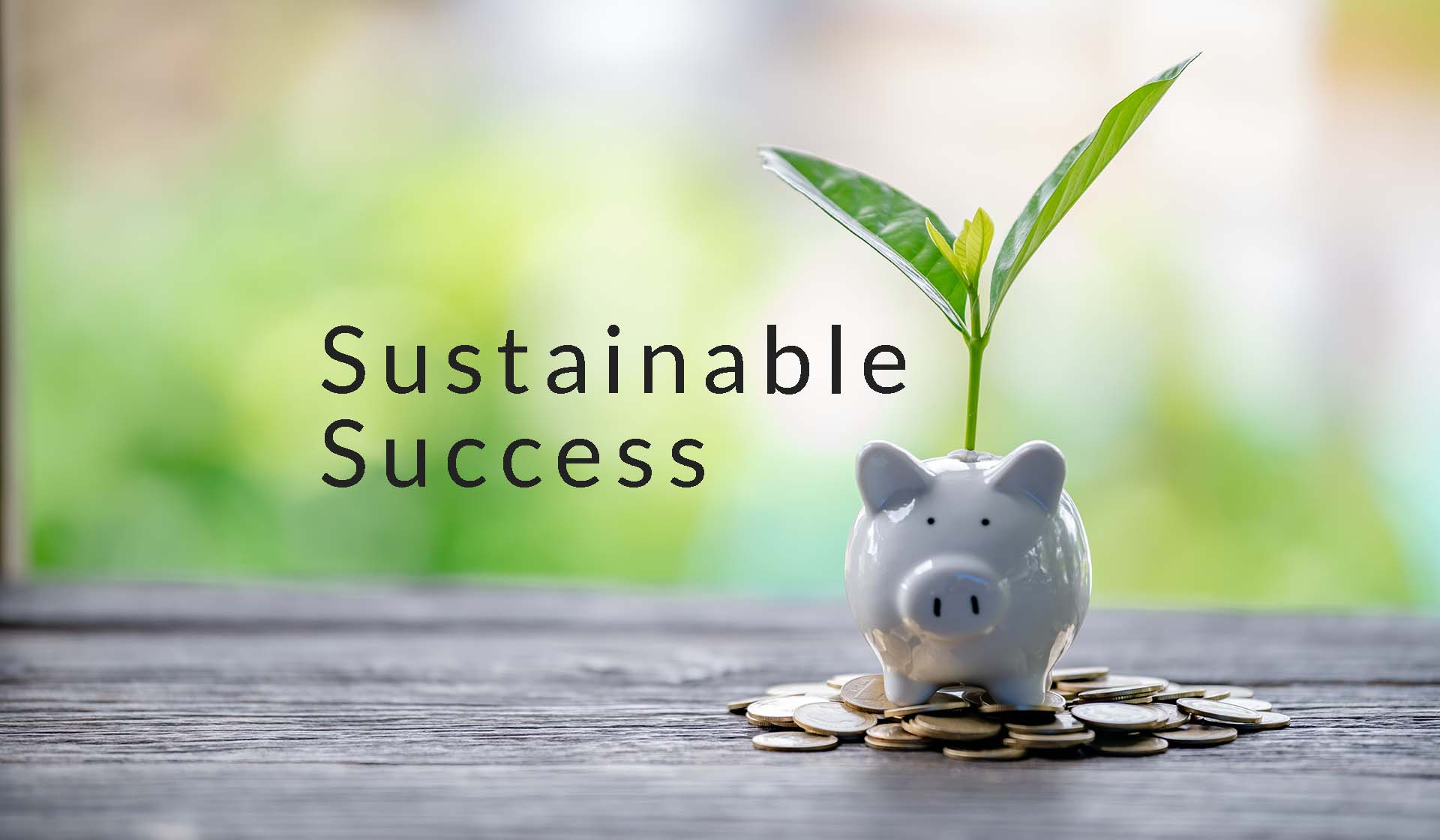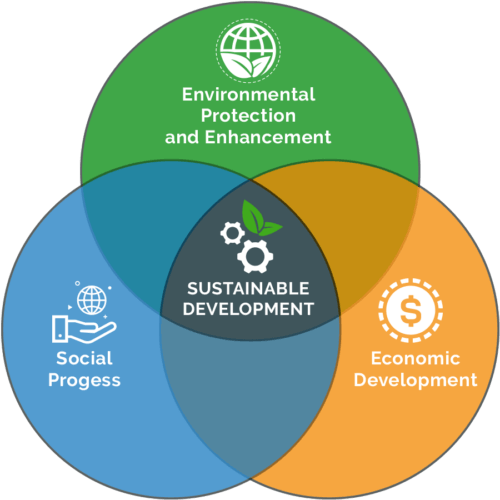Do good to do well:

Why sustainability and success go hand in hand
Businesses that generate value for the environment and society can also optimise operational efficiency and drive results
antonfoek.com
Amsterdam, 25 april 2024– Focusing on sustainability can lead to significant gains in efficiency and profitability; and businesses are increasingly understanding that environmental, social and governance (ESG) priorities are more than just spurious pledges. A business model that protects the environment, manages social impact throughout the value chain and establishes strong governance mechanisms can also fortify its success.

According to McKinsey & Company, there is a strong correlation between resource efficiency and financial performance, and reducing resource costs can improve operating profits by up to 60 per cent. Robust performance on the environmental aspect of ESG can give companies a handle on the rising operating costs of energy and raw materials.
But investing in sustainability is about more than just improving the top-line. This streamlining – in energy, impact, and technology – can benefit society and the environment. The ways that businesses exist and operate really matters, and so do their inefficiencies.
Cultivating transformation
Strategic structures can improve productivity and innovation efforts, but a consolidated market share also expands a business’s sphere of influence and the ability to advocate for sustainability. Arçelik – Europe’s largest white-goods manufacturer in terms of volume – is bringing all its entities under the name of one of its most competitive brands, Beko. This move unites teams from around the world under one cohesive banner, fostering global growth and strengthening trust and brand loyalty among retailers, customers and more than 55,000 employees.
Some companies place sustainable values and processes at the core of its identity – a commitment that has been internationally recognised by a range of bodies. The company has been listed as the highest-scoring household durables company on the Dow Jones Sustainability Indices for five consecutive years. “We are razor-focused on sustainability leadership,” says Beko’s CEO, Hakan Bulgurlu. “When you add our sustainability credentials and the product power that comes from scale, it’s a winning strategy.”
Developing cutting-edge technologies and integrating energy efficiency into products can help to reduce scope 3 emissions and set the tone for competitors. Beko’s commitment to the Science Based Targets Initiative to voluntarily reduce product emissions globally demonstrates its dedication to the cause. Setting robust aims to balance its emissions, Beko plans to reach net zero emissions in the value chain by 2050 in line with the Science Based Targets Initiative. This would mean reducing Scope 1-2-3 (use phase of products) by 42 per cent from a 2022 base year, and reducing entire Scope 1-2-3 emissions by 90 per cent as of 2050.

Using water sources efficiently is also a critical factor, and water stress will become one of the predominant physical risks of climate change. Beko’s SaveWater technology is designed to reduce water consumption in product ranges by intelligently reusing water that has been saved from previous washing cycles. Developed for both dishwashers and washing machine/tumble dryers, SaveWater technology can conserve water sources by saving up to a total of 7.8 litres per cycle.
As with efficiency, a transparent and in-depth sustainability roadmap is vital for achieving strategic transformations of the value chain in this way. Developing a holistic sustainability approach across all business activities can help organisations show leadership with an authentic ESG strategy that stands out from the crowd.
Sustainable strategy
To function effectively and build real value, embedded sustainability strategies need to be fully integrated and address the gamut of ESG factors. While environmental protection may seem like the prevailing wind of sustainability, social factors are also pivotal – sustainable progress needs an equal society. For its commitment to resolving gender imbalances in the organisation, in 2023, Beko was listed among 485 companies in the Bloomberg Gender-Equality Index (GEI) for the first time ever.
To champion sustainability, transparency and accountability should also be part of governance structures. “By including ESG KPIs in the performance evaluation scorecards of C and D level executives we can ensure that sustainability goals are given the same weight as traditional business objectives,” says Bulgurlu. This incentivises decision-makers to pursue ESG-led strategies that make sense for business, the environment and society.
Dr Catherine Tilley is a Senior Lecturer in Business Ethics and Sustainability at King’s College London and Impact Director at the Institute for Sustainable Business. “Having a strong and well-articulated corporate purpose can be a catalyst for change,” she says. “It frames the company’s relationship with its stakeholders and gives it a touchstone for better decision-making.”
Meaningful and transparent ESG disclosure also allows investors, customers and regulators to assess the sustainability success of an organisation. Systematic sustainability reporting provides a valuable way to track progress on clear and quantifiable ESG KPIs, too – gaps can be addressed, and the cost of positive and negative externalities can be better understood. Findings from a 2023 Deloitte survey suggest 32 per cent of consumers claim their trust in brands would be improved if they had a transparent, accountable, and socially and environmentally responsible supply chain.
Low carbon, high priority
Companies can minimise their footprint by decarbonising their own operations and supply chains through energy efficiency, renewable energy, and technologies that reduce environmental impact.

Committing to decarbonisation requires companies to continually decrease the amount of greenhouse gas emissions they put into the atmosphere. For Bulgurlu, decarbonisation has to be the number one business strategy right now. “We’re putting our capital exactly where it works best: towards decarbonising,” he says. “To have financial success you have to deliver positive cash flow, but you also need to decrease the impact on your carbon balance sheets.”
Indeed, the role of home appliances is perhaps more significant than other industries: air conditioning, refrigeration and lighting, account for 40 per cent of global electricity consumption.
“Today, energy efficiency technology exists that could cut the consumption by 50 per cent in each of those categories. That’s 20 per cent of all power consumption consumed disappearing tomorrow, which means you can shut down 2,100 coal-fired power plants around the world, automatically making a big dent in terms of decarbonising.” As Bulgurlu says: the cleanest fuel in the world is the energy that we don’t use.









